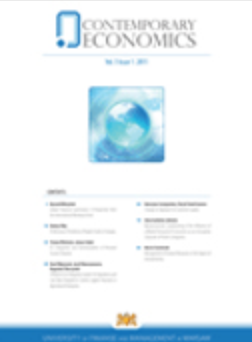Selected micro- and macroeconomic conditions of wages, income and labor productivity in Poland and other European Union countries
Selected micro- and macroeconomic conditions of wages, income and labor productivity in Poland and other European Union countries
Author(s): Dariusz FatułaSubject(s): Labor relations, Evaluation research, Economic development, Financial Markets
Published by: Akademia Ekonomiczno-Humanistyczna w Warszawie
Keywords: labor productivity; the level of prices; wages;
Summary/Abstract: The aim of the article is to identify and compare key factors affecting the level of labor productivity, wages, and income in the economies of the EU countries. Among different determinants, the following were considered: overall price level; compensation of employees; participation of the self-employed and their mixed income in GDP; annual hours worked per employer; labor participation rate, particularly before retirement (age 55-64); part-time employment rate, and the contribution of investments. Eurostat data and that of the OECD and the World Bank were used for calculations. The indicators of correlation and a grouping method were also applied. Four groups of countries with a similar level and impact of specific factors were distinguished. The most important conclusion coming from the research is the strong correlation of the relative price level, remunerations and the average worked hours with the labor productivity. Their influence differs slightly in case of the work efficiency figure per employee and the work efficiency figure per one hour worked. Other variables such as the proportion of professionally active people, especially those at the age of preretirement (55-64 yrs. old); the high proportion of part-time workers or the level of capital expenditure have a lesser but relatively strong correlation with the labor productivity of both the employee and the worked hour. Conclusions from the analysis may support the state policy in terms of forming minimum wages and indirect taxation influencing the overall price level and the level of investment in the economy. Such conclusions were formed as recommendations for countries with the lowest levels of work efficiency, remunerations and income. Restrictions to the application of this advice are political conditions, the employment structure in a given country and labor market elasticity
Journal: Contemporary Economics
- Issue Year: 12/2018
- Issue No: 1
- Page Range: 17-32
- Page Count: 16
- Language: English

